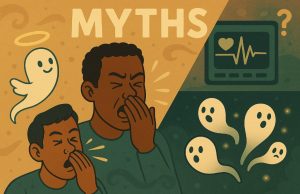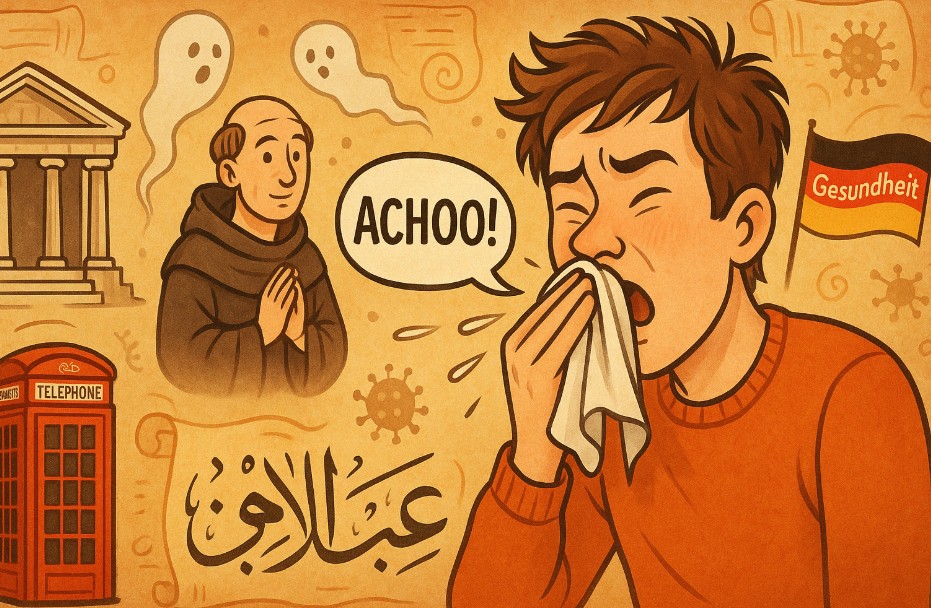Why Do People Say “Bless You” When You Sneeze? The History, Myths and Science
Have you ever wondered why someone instinctively says “Bless you” when you sneeze? This small, seemingly polite gesture has an unexpectedly rich history.
In fact, it dates back over a thousand years and is tied to everything from plagues to superstitions about the soul. But in today’s modern society, is it still relevant or simply a tradition carried out on autopilot?
In this blog, we’ll unravel the fascinating origins of this age-old phrase, explore the religious, cultural and scientific roots behind it, and examine whether saying “Bless you” still has a place in today’s world.
Why Did People Start Saying “Bless You” After a Sneeze?

Good manners dictate that every sneeze whether it’s a thunderous nasal eruption or a delicate “achoo” deserves a polite response. Across British culture and much of the Western world, it’s almost automatic to say “Bless you” when someone sneezes.
Whether it’s your mum, your cousin, or a complete stranger on the Tube, we often do it without thinking, perhaps just because “that’s how we were raised.”
But have you ever stopped to question why we do it?
The actual origin of this kind of social reflex is somewhat murky. However, many historians and folklorists believe it stems from deep-rooted superstitions dating back centuries.
Ancient Romans and Greeks viewed sneezing as a spiritual occurrence, potentially an omen or a sign from the gods. To protect the sneezer or themselves from misfortune or illness, people began uttering words of blessing.
Why Did the Plague Popularise Saying “Bless You”?
One of the strongest and most widely accepted theories links the phrase to Pope Gregory I during the time of the bubonic plague in 6th century Europe.
Sneezing was commonly seen as an early symptom of the deadly illness, and in an effort to offer divine protection, Pope Gregory encouraged people to say “God bless you” after someone sneezed.
This short prayer was thought to help guard against sudden death. It became a widespread practice during the Black Death and carried through centuries as a customary expression of concern and spiritual safeguard.
Though today we no longer associate sneezing with imminent doom, the habit of blessing someone lives on, primarily as a polite and courteous social gesture.
Why Are There So Many Myths About Sneezing?

Throughout history, sneezing has been wrapped in layers of myth and mystery. Superstition has played a big role in shaping how societies interpret and respond to it.
One ancient belief held that a sneeze could accidentally expel the soul from the body. Saying “Bless you” was seen as a way to ensure the soul stayed intact or returned safely.
In some cultures, sneezing was believed to drive out evil spirits, leaving the sneezer vulnerable and those nearby at risk of spiritual contamination. The blessing thus served as a form of protection for both the sneezer and the people around them.
And of course, there’s the well-known myth that your heart stops momentarily when you sneeze. While modern science confirms that this isn’t actually true your heart’s rhythm may change slightly, but it doesn’t stop the rumour has contributed to the perception of sneezing as a brief moment of danger.
Saying “Bless you” has been jokingly described as welcoming the sneezer “back to life.”
While we no longer fear spirits, plagues, or heart failure from a sneeze, many of these theories highlight the historical gravity once placed on this everyday bodily reflex.
Why Do Different Cultures Respond Differently to Sneezing?
Sneezing customs vary around the world, influenced by religion, language, and cultural norms.
- In Germany, people typically say “Gesundheit”, meaning “health.”
- In Arabic-speaking countries, the sneezer says “Alhamdulillah” (Praise be to God), and listeners respond with “Yarhamuk Allah” (May God have mercy on you).
- In Japan, sneezing is largely seen as a natural occurrence that doesn’t require verbal acknowledgement.
- In India, responses differ by region some people say blessings, while others don’t acknowledge the sneeze at all.
These traditions reflect differing views on health, politeness, and spirituality. They also show how something as simple as a sneeze can hold a range of meanings depending on where in the world you are.
Why Does Sneezing Trigger Social Responses?

There’s also a psychological element at play. A sneeze interrupts conversation and momentarily draws attention. It’s an involuntary act that can make the sneezer feel vulnerable, especially in public.
Responding with a blessing has become a social reflex, an expression of empathy and good manners. It demonstrates awareness and consideration, even if it’s only a brief verbal cue.
Modern etiquette considers it polite to say something when someone sneezes. Whether or not you believe in ancient superstitions, offering a quick “Bless you” is a way of saying, “I noticed you, and I wish you well.”
Why Do People Still Say “Bless You” in Modern Times?
In the modern UK, saying “Bless you” is primarily a cultural habit something taught from a young age and reinforced by social interaction. Even in a secular society, these linguistic leftovers from religious or superstitious traditions persist.
And let’s be honest many of us do it without thinking. It’s just “what you say.” But it’s also a small way of showing social grace. Some might prefer neutral alternatives like “Gesundheit” or a polite nod, but few people find it offensive.
So even though we’re no longer worried about demons, momentary death, or plague, saying “Bless you” remains a common courtesy. And if it happens to safeguard our souls at the same time well, all the better.
Why Do Sneezing Customs Differ Across the Globe?
Here’s a look at how people around the world respond to sneezing:
| Country | Common Response | Meaning/Origin |
| UK | Bless you | Religious blessing, superstition, health concern |
| Germany | Gesundheit | “Health” – wish for good health |
| Japan | None (or silent response) | Sneezing not treated symbolically |
| Arabic nations | Alhamdulillah / Yarhamuk Allah | Praise to God / May God have mercy |
| India | Regional blessings or no reply | Spiritual or regional variations |
Why Has “Bless You” Become More Than Just a Phrase?
Over time, “Bless you” has grown beyond its religious and superstitious roots. It has become part of everyday social etiquette, a way to show consideration for others and to maintain polite interaction, even during unexpected moments.
In a world where we’re constantly navigating public space and personal boundaries, even a sneeze becomes an opportunity to be kind, however briefly. That small phrase, habitual as it may be carries a bit of tradition, a touch of care, and a surprising amount of history.
FAQs
What is the origin of the phrase “Bless you” after sneezing?
The phrase dates back to Pope Gregory the Great, who encouraged people to say “God bless you” during the plague to protect against sudden death.
Did people think the soul left the body when sneezing?
Yes, in many ancient cultures, sneezing was believed to expel the soul or open the body to evil spirits, hence the need for a blessing.
Is it true that your heart stops when you sneeze?
No. Your heart rhythm may temporarily change due to pressure, but your heart does not stop beating.
Why is sneezing seen as significant in some cultures?
In many societies, sneezing is linked to omens, divine messages, or spiritual transitions, making it symbolically important.
Do all cultures say something after a sneeze?
No. Some cultures have formal responses, while others consider sneezing a non-event that doesn’t require acknowledgment.
What are polite alternatives to saying “Bless you”?
Alternatives include “Gesundheit,” “excuse you,” or even remaining silent, depending on cultural norms and personal preferences.
Is saying “Bless you” outdated in modern society?
Not entirely. While some people find it unnecessary, many still consider it polite and customary, especially in the UK.







